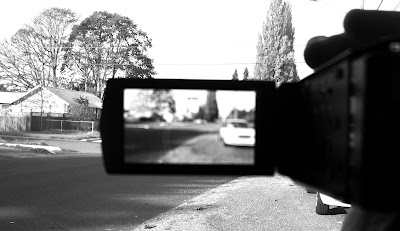No matter what kind
of mobile phone is used, whether it is a smart phone device or a common cell
phone, it is basically used for call and messaging purposes. All kinds of cell phones are playing a
significant part as digital evidences in investigations regarding criminal and
civil litigations. The technology which
has been used in these cell phones enables them to save each and every
repository about personal information.
That saved data is referred to as solid evidence. With the help of cell
phone forensics useful information from the cell phones can be obtained like
call records, location, files, multimedia files and appointments that can be
used as admissible evidence in all the legal proceedings. A
Certified Cell Phone Examiner or a forensic expert team is deployed by private
or government sector so as to categorize the useful information or evidences.

Private or
government sector cell phone forensic investigators are trained in use of advanced
forensic tools and have expertise in many techniques used to recover distinct
kinds of evidences. Additionally,
investigators deal with the most stringent aspects of cell phone forensic evidence
recovery, such as device’s flash memory analysis, even when the device is
un-operational, broken, or when the analysis is not compatible with the
forensic application.
- Cell Phone Examiners extensively deal with assembling evidence
from the cell phones in varied sorts:
- Records of Call History
- Recovery of Contact List/ Phone Book
- Recovery of Text Message / Determining receiver & sender and
thus creating a timeline for events
- Recovery of To Do List
- Analysis of Cell Phone Chat/ Email
- Recovery of Multimedia Message
- Extracting Audios/Photos/Videos
- Tracing of Social
Networking Activities
- Data Extraction from Physical Memory/Sim Cards
- Access Encrypted Data & Back Up Files / Decode Data
- Detecting of Spyware/ Malware
The extent of cell
phone forensic examination is broadly increasing in several investigation areas. They primarily follow this investigative measure in order to deal with white collar crimes like
securities fraud, bankruptcy frauds, investment frauds, bank frauds, Ponzi schemes, identity thefts and serious offenses like
homicides, child pornography, cyber bullying, stalking, and espionage. Cell
phone examiners are proficient in recovering lost/deleted information or
evidence from all sorts of cell phone models including array of high-tech smart
phones such as Blackberry, Androids and iPhones.

ICFECI provide Cell Phone Examiners
specialized in tracking transactions, social connections, appointment
schedules, communication by third party applications, meetings and location
trace with respect to the event’s timeline.
Cell Phone Examiners are experienced and well trained in performing as a
professional witness in presenting digital/electronic evidence.
Cell Phone Examiners
handle preservation, acquisition, and processing of evidence, in a forensically
sound manner. Evidence custody is
maintained in full compliance with codes and rules of evidence.







